Innehållsförteckning.
Offer för det ryska maffiavåldet.
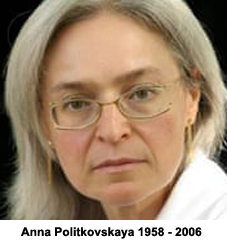
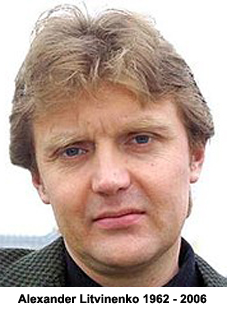
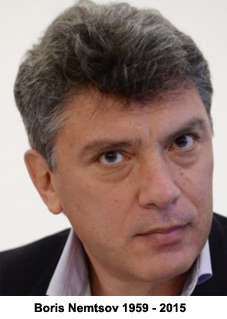
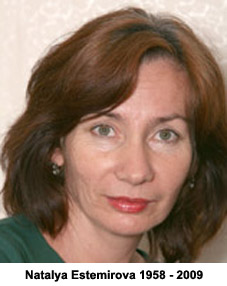
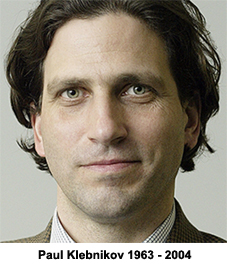
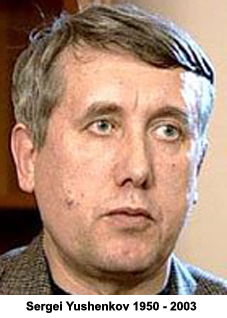
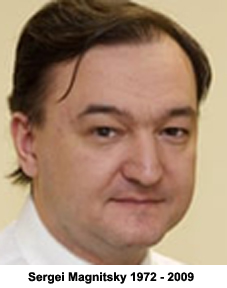
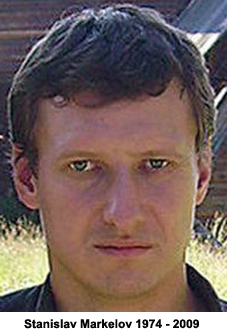
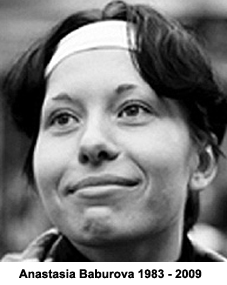
Anna Politkovskaya.
Wikipededia:
Politkovskaya was found dead in the lift, in her block of flats in
central Moscow on 7 October 2006. She had been shot twice in the chest,
once in the shoulder, and once in the head at point-blank range. The
assassination had happened on
Vladimir Putin's
birthday, and two days after
Ramzan Kadyrov's 30th
birthday celebrations, raising suspicions that one or both were served
up by the contract hit. There was widespread
international reaction to the assassination.
Alexander Litvinenko.
Wikipedia:
On 1 November 2006, Litvinenko suddenly fell ill. On 3 November, he
was admitted to Barnet General Hospital in London. He was then moved to
University College Hospital
for intensive care. His illness was later attributed to poisoning with
radionuclide
polonium-210 after the
Health Protection Agency
found significant amounts of the rare and highly toxic element in his
body.
Before his death, Litvinenko said: "You may succeed in silencing one man
but the howl of protest from around the world, Mr. Putin, will
reverberate in your ears for the rest of your life." On 22 November
2006, Litvinenko's medical staff at
University College Hospital
reported Litvinenko had suffered a "major setback" due to either heart
failure or an overnight heart attack. He died on 23 November. The
following day, Putin publicly stated: “Mr Litvinenko is, unfortunately,
not Lazarus”
Boris Nemtsov.
Wikipedia:
Just before midnight, at 23:31 local time on 27 February 2015,
Nemtsov was shot several times from behind. He was crossing the
Bolshoy Moskvoretsky Bridge
in
Moscow, close to the
Kremlin
walls and
Red Square.
He died at the scene. He was murdered less than two days before he was
due to take part in a
peace rally against Russian
involvement in the
war in Ukraine and the
financial crisis in Russia.
Natalya Estemirova.
Wikipedia:
Estemirova was abducted on 15 July 2009 from her home in Grozny,
Chechnya. According to
Tanya Lokshina of the
Moscow bureau of
Human Rights Watch, unknown
individuals abducted Estemirova near her house in Grozny at around 8:30
a.m. Two witnesses reportedly saw Estemirova being pushed into a car
shouting that she was being abducted. Lokshina said Estemirova was
abducted as she was working on "extremely sensitive" cases of human
rights abuses in Chechnya. Lokshina said that she had been targeted for
her professional activities. Vladimir Markin,
press secretary for the investigative committee of the
Prosecutor General of Russia,
said a body of a woman with bullet wounds in the head and chest was
found at 4:30 p.m. in woodland 100 m away from the federal road "Kavkaz"
near the village of Gazi-Yurt, Ingushetia. Investigators found items
belonging to Estemirova in the purse of the woman. These items were a
passport, an ID of the Chechnya expert for the
Human Rights Commissioner of Russia
and the mandate of the penitentiary supervision public committee.
Paul Klebnikov.
Wikipedia:
On July 9, 2004, while leaving the Forbes office, Klebnikov was
attacked on a Moscow street late at night by unknown assailants who
fired at him from a slowly moving car. Klebnikov was shot four times and
initially survived, but he died at the hospital after being transported
in an ambulance that had no oxygen bottle and the hospital elevator that
was taking him to the operating room broke down. Authorities described
the attack as a contract killing. The publisher of the Russian edition
of Forbes stated that the murder was "definitely linked" to Klebnikov's
journalism. Various commentators have speculated that the magazine's
recent story on Russia's 100 richest people may have triggered the
attack.
Sergei Yushenkov.
Wikipedia:
Sergei Yushenkov was shot dead near his house in
Moscow on 17 April 2003,
just hours after finally obtaining the registrations needed for his
Liberal Russia party to participate in the December 2003 parliamentary
elections in 55
regions. His last known
public utterance was "Registration has been completed."
Mikhail Trepashkin believed
that Yushenkov was murdered because he was a leader of an opposition
party that openly challenged the power of the FSB and Russian
authorities.
Sergei Magnitsky.
Wikipedia:
Magnitsky was arrested and imprisoned at the
Butyrka prison in Moscow in
November 2008 after being accused of colluding with Hermitage. Held for
11 months without trial, he was, as reported by
The Telegraph, "denied visits from
his family" and "forced into increasingly squalid cells." On 16 November
2009, eight days before he would have had to be released if he were not
brought to trial, Magnitsky died. Prison officials at first attributed
his death to a "rupture to the abdominal membrane" and later to a
heart attack. Reporters learned
that Magnitsky had complained of worsening stomach pain for five days
prior to his death and that by the 15th, he was vomiting every three
hours, and had a visibly swollen stomach. On the day of his death, the
prison physician, believing Magnitsky had a chronic disease, sent him by
ambulance to and later transferred him to
Matrosskaya Tishina prison's
medical unit, which was equipped to help him. But the surgeon there -
who described Magnitsky as "agitated, trying to hide behind a bag and
saying people were trying to kill him" - prescribed only a painkiller,
and left him to receive a psychiatric evaluation. Magnitsky was found
dead in his cell a little over two hours later.
Stanislav Markelov.
Wikipedia:
Markelov was a president of the Russian Rule of Law Institute. He
represented
Anna Politkovskaya,
who was gunned down in Moscow in 2006; Mikhail Beketov, the editor of a
pro-opposition newspaper who was severely beaten in November 2008; and
many Chechen civilians who had been tortured. He also defended people
who were victims of the
Moscow theater hostage
Markelov was shot to death on 19 January 2009 while leaving a news
conference in Moscow less than half a mile from the
Kremlin; he was 34.
Anastasia Baburova,
a journalist for
Novaya Gazeta
who tried to come to Markelov's assistance, was also shot and killed in
the attack.
Anastasia Baburova.
Wikipedia:
In July 2008, Baburova participated in a demonstration against the
felling of the Khimkinsky Forest. For her involvement in another protest
against the eviction of former pork factory workers from the
Moscow factory, 'Smena' and impoverished
CIS immigrants she would spend a night
in prison. The day before her murder, Anastasia appeared at the
anarcho-communist unity event 'Autonomous Action'. Earlier she had
written an article on behalf of the journal 'Avtonom'. Baburova became
the fourth
Novaya Gazeta journalist to be killed
since 2000. At first it was reported that Baburova had been wounded in
an attempt to detain Stanislav Markelov's killer, but
later Russian law enforcement authorities declared that Baburova was
shot in the back of her head. Baburova died a few hours after the attack
at a Moscow hospital.